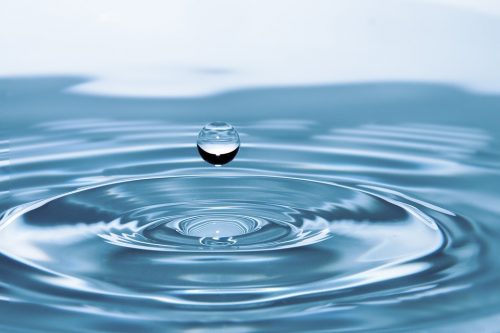 Desalination of seawater is possible by using Thermal Desalination Technology and/or Membrane Technology like Reverse Osmosis (RO). Thermal and/or Electrical energy from Atomic Power Station or Nuclear Research Reactor/s can be used for this purpose. A total of 63 lakh litres per day capacity seawater desalination plant has been setup as Nuclear Desalination Demonstration Project (NDDP) at Kalpakkam, Tamil Nadu and is under regular operation producing 45 lakh litres of water per day by Thermal Desalination process, drawing nuclear low pressure steam from the existing and operating Madras Atomic Power Station (MAPS). Also, 18 lakh litres of water per day is being produced using membrane based technology using grid electrical energy of MAPS. The plant is the largest operating hybrid nuclear desalination plant in the world. The plant produces dual quality of water – water for high-end industrial applications of quality less than 10 mg per litre of TDS (Total Dissolved Solids) and potable water of less than 500 mg per litre of TDS for drinking and other applications.
Desalination of seawater is possible by using Thermal Desalination Technology and/or Membrane Technology like Reverse Osmosis (RO). Thermal and/or Electrical energy from Atomic Power Station or Nuclear Research Reactor/s can be used for this purpose. A total of 63 lakh litres per day capacity seawater desalination plant has been setup as Nuclear Desalination Demonstration Project (NDDP) at Kalpakkam, Tamil Nadu and is under regular operation producing 45 lakh litres of water per day by Thermal Desalination process, drawing nuclear low pressure steam from the existing and operating Madras Atomic Power Station (MAPS). Also, 18 lakh litres of water per day is being produced using membrane based technology using grid electrical energy of MAPS. The plant is the largest operating hybrid nuclear desalination plant in the world. The plant produces dual quality of water – water for high-end industrial applications of quality less than 10 mg per litre of TDS (Total Dissolved Solids) and potable water of less than 500 mg per litre of TDS for drinking and other applications.
The sea water desalination plant set up at Kalpakkam is a demonstration plant. The cost of water produced depends upon many factors like cost of electricity, quality of required end product, choice of technologies, seawater quality, local infrastructure and logistics etc. On an average, the cost of conversion of seawater into desalinated water is about 10 paise per litre of water produced. At present, there is no proposal before the Government to set up sea water Desalination plant using Atomic Energy.






